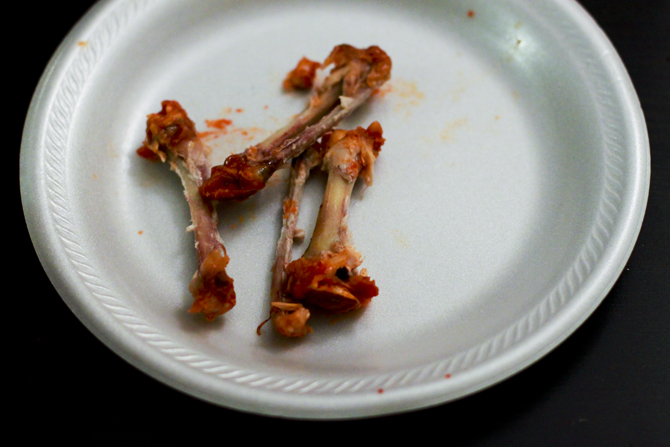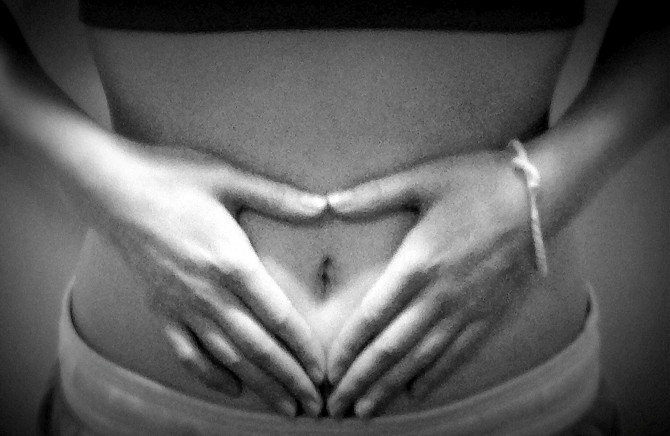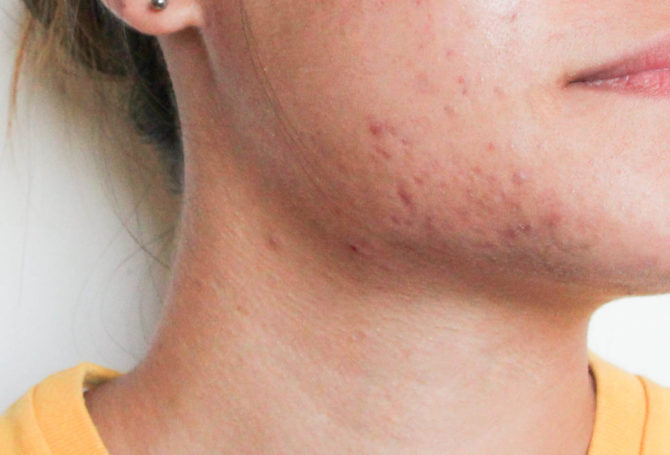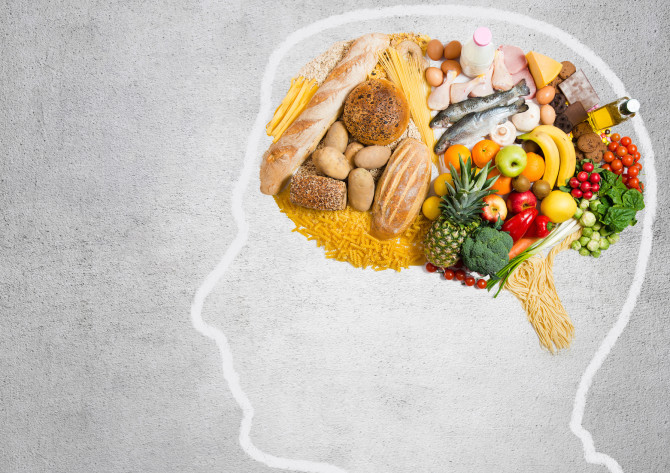Anorexia nervosa is a whole lot more than “just not eating;” it’s a serious, serious disease and kills more people than any other mental illness, even depression. While some of these implications can be reversed with weight restoration and treatment, eating disorder treatment is serious and complicated both mentally and physically, and sadly, some of its effects can’t be reversed.
We’ve already busted some common misconceptions about anorexia and EDs in general, but now we’re going to break down just how badly the disease can wreak havoc on the whole body.
For more information, check out the National Eating Disorder Association’s website.
1. Hair

Photo by Becky Hughes
Anorexia can make good hair go bad. Usually, hair thins on the head (sometimes chunks may even fall out), and instead, starts to spurt up all over the body, like a fuzzy peach. It’s called languo and is the body’s attempt to keep warm in the absence of body fat.
2. Liver

Photo by Katarina Dioneda
Anorexia is pretty rough on the liver, which is a mega-important organ which creates a lot of essential enzymes that help you break down food, and basically, live. It also is where the body filters out anything toxic (like alcohol) and metabolizes drugs. Clearly, it’s an important player in health. Anorexia can alter important liver enzymes which can have impacts all over the body, and cause liver failure.
3. Bones

Photo by Sarah Strong
Anorexia can seriously decrease bone density. This means bones are more brittle and increases risks of osteoporosis in the long run. Sadly, this is an impact of malnutrition that can’t be reversed with treatment.
What’s worse is that anorexia often hits around the time where people are achieving their peak bone density (adolescence) making for a double whammy. Once the bones stop growing and forming, a bone density window closes and there’s not much that can be done other to reverse the damage.
4. Digestive System

Photo by Nancy Chen
Not getting out calories and food can cause mega constipation and other digestive issues. Not to mention the fact that your intestines can’t absorb many vitamins if fat intake is too low.
5. Metabolism

Photo by Christin Urso
Taking in inadequate calories can flux with your metabolic rate. Your thyroid begins to slow its hormone role and your metabolism slows down, trying to cling to every last calorie. It’s basically your body’s way of trying to save itself in dangerous conditions.
6. Blood

Photo by Hannah Lin
Anorexia can lead to low white blood cell count (making it harder to fight off illness), as well as anemia. Also, after your body uses all of its glucose stores in your blood, it starts to break down glucose in your fat stores. Your liver creates these things called “ketone bodies” to give your brain something to function on. Too many ketone bodies lead to acidic blood and a dangerous state known as ketogenosis.
It can counterintuitively lead to high blood cholesterol which is not good.
7. Joints

Photo by Max Bartick
Malnutrition can cause the body to hold fluid and lead to swelling known as edema (this is also why you see pictures of starving children with big bellies).
8. Skin

Photo by Helen Poon
Anorexia can dry out your skin, and lead to hyper-pigmentation. Many people who suffer from the disorder also grow hair all over their body in an attempt to regulate body heat. Even so, many report being intolerable to the cold.
9. Muscles

Photo courtesy of bodybuilding.com
After your body uses all of its glucose stores in your blood, liver and kidney, it starts to break down your muscles. In addition to overall weakness, keep in mind that many important organs are muscles or rely on them (see below).
10. Heart

Photo by Abigail Wilkins
This is one of the most dangerous features of anorexia, and is often the reason people die from the disease. Starvation can mess with electrolyte balances in the blood, which are essential to the function of all cells in the body, including the heart. Anorexia can lead to heart arrhythmia (fluttering), heart attack, and death. The heart is also a muscle (see above). When your body starts to break down muscle, this includes the heart.
11. Mental Health

Photo courtesy of makeyourbrainfast.com
Anorexia often comes along with depression and anxiety, often leading to social isolation, self-harm, and suicide. It’s important to keep in mind that treating anorexia is about much more than weight restoration. The mind needs to heal as much as the body, and this component of treatment is often far more difficult.
12. Reproductive Health

Photo courtesy of hdwallpapersimages.com
Starved of calories, the body tends to shut down the reproductive system, leaving females with the disorder with missed periods (a condition known as amenorrhea). This can also lead to lifelong issues of infertility in severe cases.
Clearly, anorexia is no joke. If you or anyone you know needs help, visit nationaleatingdisordersawareness.org for advice and information.


